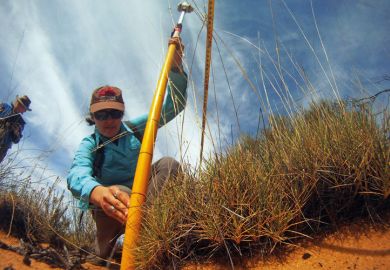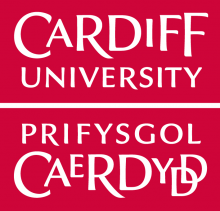The first arts, humanities and social science university departments to win an Athena SWAN award have been named.
In the first round of applications since the gender equality charter scheme was extended to cover subjects beyond science, technology, engineering and maths, two schools at Queen’s University Belfast (modern languages, and sociology, social policy and social work) and two at the University of Edinburgh (economics, and history, Classics and archaeology) were awarded a bronze Athena SWAN charter mark.
Durham University’s School of Government and International Affairs also picked up a bronze award.
A total of 12 non-STEM departments had applied to gain accreditation.
Examples of good practice highlighted by the Equality Challenge Unit, which runs Athena SWAN, include having 12 months of paid maternity leave available to staff, irrespective of length of service, at Edinburgh’s economics department, where flexible working on return from leave and a mentoring scheme for younger academics was also on offer.
Durham’s School of Government and International Affairs was commended for offering staff who take three months’ shared parental leave a term with a reduced workload (50 per cent) to allow them to focus on research.
The School of Sociology, Social Policy and Social Work at Queen’s Belfast was praised for encouraging a good work–life balance, in particular a policy that emphasises that staff are not required to engage in email correspondence during the evenings and weekends.
“It is encouraging to see universities engaging with the Athena SWAN charter across disciplines,” said Ruth Gilligan, the ECU’s Athena SWAN manager.
“We’ve seen the impact of the charter for academic women in science and for their departments over the past 10 years [and] are delighted to welcome the five successful [non-STEM] departments as they lead the way for equality and career progression for colleagues in non-STEM subjects,” Dr Gilligan added.
Overall, the success rate – 42 per cent – for the non-STEM applicants was lower than the 66 per cent for the whole scheme, a figure down from 70 per cent in the previous round of applications in April 2015.
That lower success rate was attributed to a new process used by applicants, who are now required to include professional and support staff in their considerations.
Overall, 84 successful Athena SWAN awards, including seven at institutional level, were granted from 128 applications.
Newcastle University and the University of Sheffield join a small group of universities holding silver institution awards, bringing the total number with this award to nine, while the Institute of Cancer Research became the third institute to take a silver award.
Athena SWAN winners (April 2016)
Bronze Institution Awards
- University of Bradford
- University of Salford
- University of the West of Scotland
- University of Westminster
Silver Institution Awards
Bronze Departmental Awards
- Bangor University
School of Psychology - Birkbeck, University of London
Department of psychological sciences - Cardiff University
School of Dentistry - Durham University
Department of earth sciences - Durham University
Department of mathematical sciences - Durham University
School of Government and International Affairs - Heriot-Watt University
School of Energy, Geoscience, Infrastructure and Society - King’s College London
Division of Cancer Studies - King’s College London
Division of Health and Social Care Research - King’s College London
Division of Palliative Care, Policy and Rehabilitation - Lancaster University
Department of chemistry - Queen’s University Belfast
School of Modern Languages - Queen’s University Belfast
School of Sociology, Social Policy and Social Work - Sheffield Hallam University
Department of nursing and midwifery - Ulster University
School of Computing and Intelligent Systems - Ulster University
School of Engineering - University College London
Institute of Clinical Trials and Methodology - University of Bath
Department for health - University of Bath
Department of biology and biochemistry - University of Cambridge
Department of earth sciences - University of Cambridge
Department of pathology - University of Edinburgh
School of Economics - University of Edinburgh
School of History, Classics and Archaeology - University of Glasgow
Institute of Cardiovascular and Medical Sciences - University of Huddersfield
School of Applied Sciences - University of Hull
Department of chemistry - University of Leeds
Faculty of Environment - University of Liverpool
School of Environmental Sciences - University of Nottingham
School of Pharmacy - University of Oxford
Department of pharmacology - University of Portsmouth
Department of sport and exercise science - University of Portsmouth
Institute of Cosmology and Gravitation - University of Portsmouth
School of Pharmacy and Biomedical Sciences - University of St Andrews
Department of earth and environmental sciences - University of Surrey
Department of mechanical engineering science
Silver Departmental awards
- King’s College London
Division of Genetics and Molecular Medicine - King’s College London
Division of Imaging Sciences and Biomedical Engineering - King’s College London
Division of Transplantation Immunology and Mucosal Biology - The Open University
Department of physical sciences - Swansea University
College of Medicine - University College London
Department of computer science - University College London
Eastman Dental Institute - University of Cambridge
Department of chemistry - University of Edinburgh
School of Clinical Sciences and School of Molecular, Genetic and Population Health Sciences - University of Edinburgh
Vet School - University of Exeter
Psychology - University of Leeds
Faculty of Engineering - University of Leicester
Department of cardiovascular sciences - University of Leicester
Department of infection, immunity and inflammation - University of Manchester
School of Medicine - University of Manchester
School of Physics and Astronomy - University of Nottingham
School of Medicine - University of Oxford
Radcliffe Department of Medicine - University of Reading
School of Archaeology, Geography and Environmental Science (Human and Environmental Science) - University of Sheffield
Department of chemistry - University of Sheffield
Department of materials science and engineering - University of Sussex
School of Life Sciences
Note: departmental renewal awards are not listed
Register to continue
Why register?
- Registration is free and only takes a moment
- Once registered, you can read 3 articles a month
- Sign up for our newsletter
Subscribe
Or subscribe for unlimited access to:
- Unlimited access to news, views, insights & reviews
- Digital editions
- Digital access to THE’s university and college rankings analysis
Already registered or a current subscriber?









